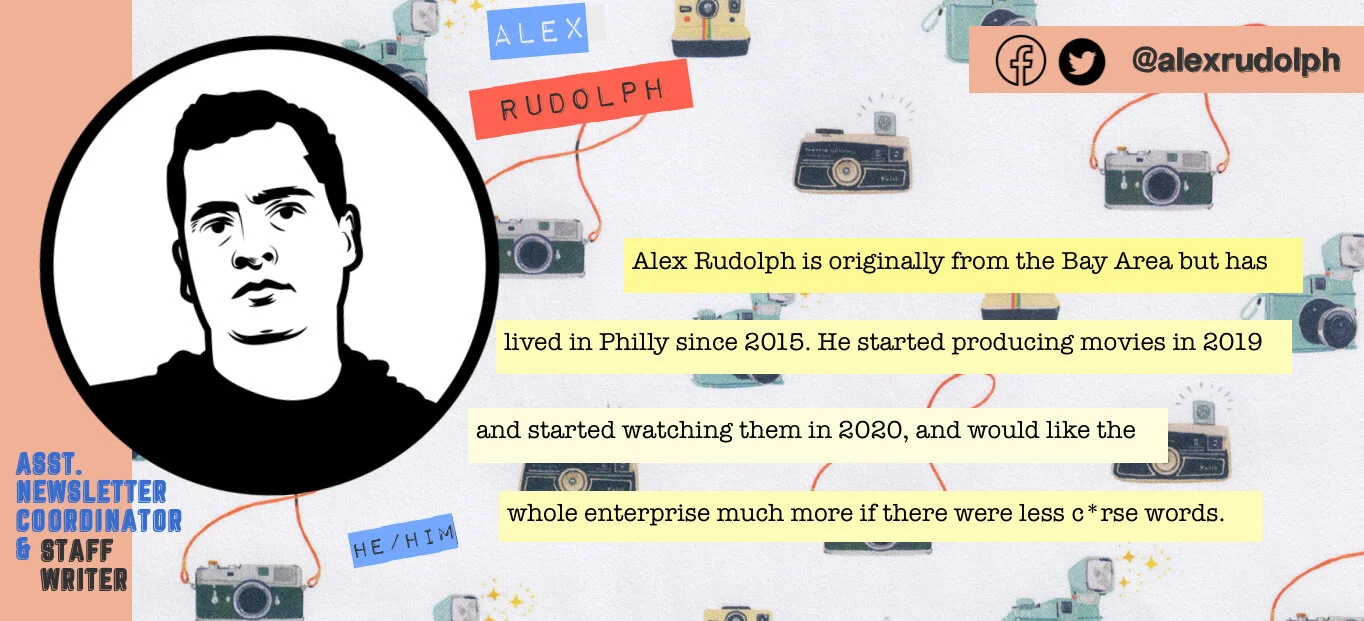WEWORK: OR THE MAKING AND BREAKING OF A $47 MILLION UNICORN is a journey into egomania
Directed by Jed Rothstein
Runtime: 1 hour, 44 minutes
Streaming on Hulu starting April 2
by Alex Rudolph, Staff Writer
Ashton Kutcher has 24 film acting credits and not one of them is tied to a movie that Rotten Tomatoes has "certified fresh." He's had a career where he can pick whatever roles he wants and every time he goes with a project critics think is terrible. He's rich and we know who he is and he's made some successful tech investments, and so we think he's at least a little smart and has okay judgment, even if that judgment leads to brownface Popchips ads and the less-remembered of the two 2011 romcoms about casual sex.
Like so many documentaries about start-up disasters, the new film WeWork: or The Making and Breaking of a $47 Billion Unicorn has a couple Kutcher cameos. He shows up giving a lecture at the bro'd out WeWork summer camp, a three-day-long festival of beer, dubstep and networking opportunities and then again later on in a TV news interview, defending WeWork's sketchy business practices in the fallout of a failed IPO. Both times I wondered "Why is this guy here as a trusted authority?" and both times I quickly realized "Oh, people think the star of Netflix's The Ranch is brilliant." That's the whole documentary in a nutshell-- people who stumble backward into money convince everybody else the stumble was tightly choreographed, and after it works they play every sucker who'll listen. Confidence will get you through every door. WeWork the movie is about WeWork the company, but really it's about how easy it is for a sociopathic weirdo to blow a company up and then shrivel it down into a pyramid scheme.
Director Jed Rothstein has made a standard-issue current events streaming documentary (you will hear frantic violin music played under montages of insincere TV news interviews as everything starts to fall apart) but few current events subjects are this good. This is a movie where we find out a company calls lattes cappuccinos and vice versa because its founder mistook one for the other once and nobody wanted to correct him. WeWork can't possibly get boring– it covers a case from the upper tiers of Capitalism's Bloopers and Practical Jokes.
To rewind: Israeli immigrant Adam Neumann came to New York City with the intention of building a start-up kibbutz. With his co-founder Miguel, who is slowly pushed out in favor of Adam's wife Rebekah, he leases office space and makes cool workplaces young people can use to hash out plans for their dream businesses. The germ of the idea isn't wrong: tech has absolutely pushed us further apart while promising to bring us closer. It's just that Adam and, eventually, Rebekah, love the spotlight a little too much and think they're going to solve the problem by building a real estate empire.
They branch out and start WeLive, a program that gets a bunch of people to live and work in 200 square foot cubicles. It's maybe a way to disrupt the way we think about social interaction and definitely a lot like spending 20 hours a day in a hostel. Rebekah, cousins with Gwenyth Paltrow and clearly hungry for a slice of the pseudo-science pie, starts an alternative school called WeGrow. It eventually becomes The School of Life For Life (SLFL ("soulful")), an Approaching the Elephant-like disruption of the education system that would have become Kamp Krusty if the students had gotten their way and a measles outbreak if the parents had gotten theirs. You can make the call on whether you'd send your kid to a school that repeats the same word twice in its name.
Eventually, the bottom blows out, the long-planned IPO doesn't happen and Adam makes his own company pay him $6 million for ownership of the word "we." Adam and Rebekah walk away with hundreds of millions of dollars and everybody who ever worked for them wishes they hadn't. If you've followed WeWork's collapse, especially Eliot Brown's writing on the subject, which gets a shout-out here, there won't be many details that catch you off-guard. Like all of these docs, though, the power is in first-hand accounts of the disaster. WeWork is still a going concern, but the disasters explored here mostly happened in late-2019, and people are still raw. Lawyers remember being lied to, assistants had their self-worths shattered when they found out their mentors were con artists. People who worked with Adam are still in awe of him-- tech people love a salesperson and love being told that what they're doing is changing the world, even if they're just selling user data or finding new ways to skirt building codes. But you can buy into a person's cokehead Jesus charisma and still feel burned when they stop practicing what they preach.
In pursuit of an even-handed take, so many documentaries will lean too hard into that charisma. They show the people who got screwed over but also include a few who admit behind closed doors that "What people don't understand about Adam is he was always trying his hardest to help the people who needed it most, and his drive to succeed masked true pain." It's to WeWork's credit that we aren't saddled with any of that. We get to know the people who were tricked, and it never takes a step backward into the place where selfishness is allowed to be redefined as tragic. It's a fascinating movie about two uncomplicated egomaniacs who figured out how to rip their employees off.


